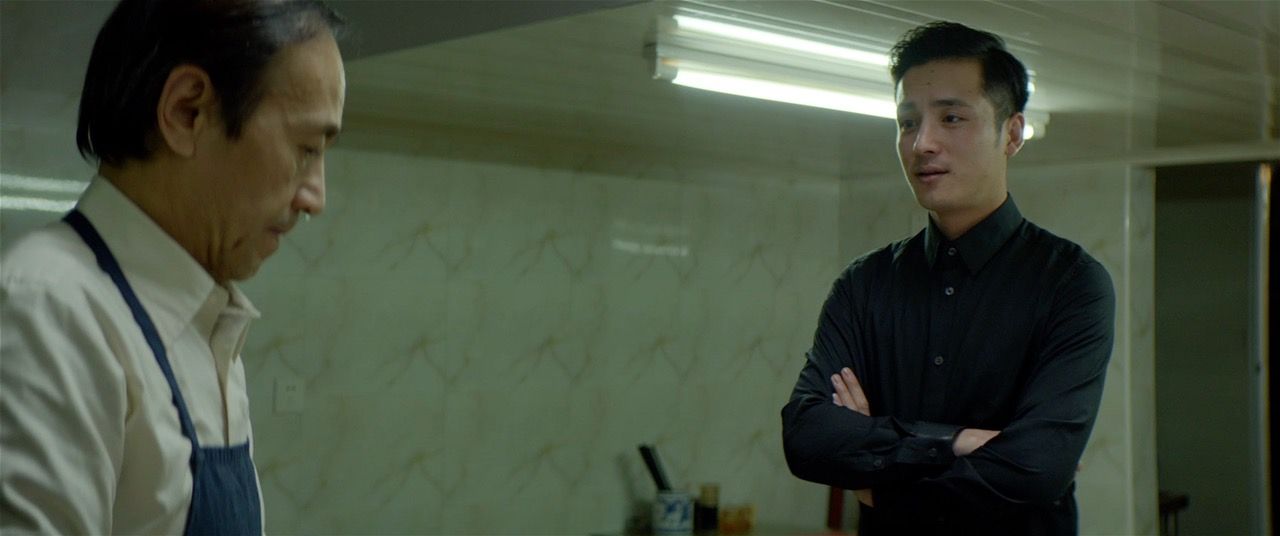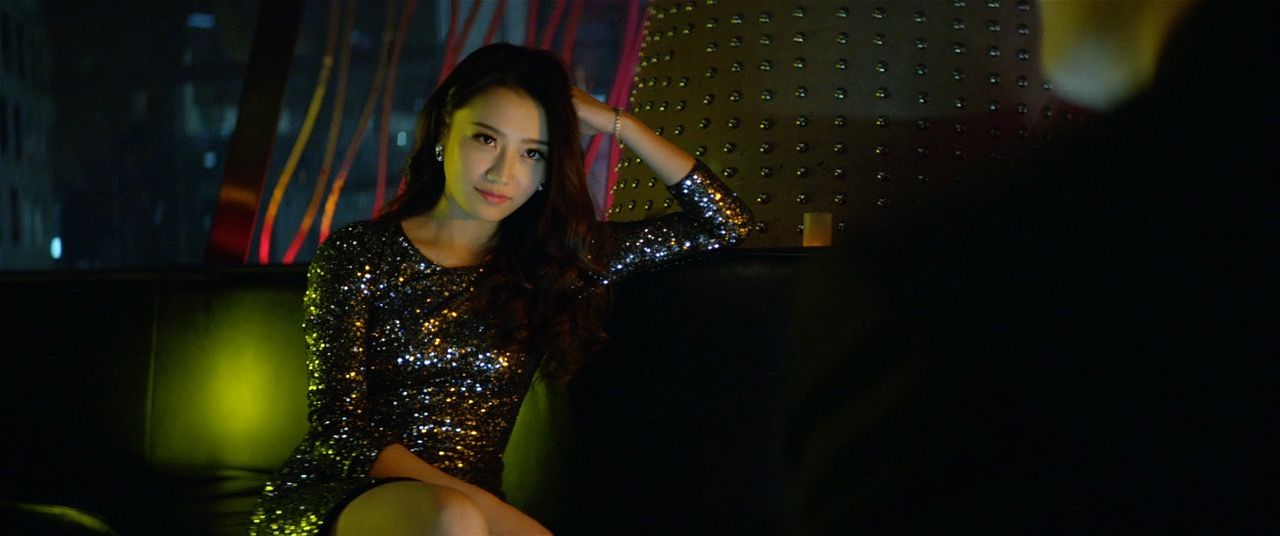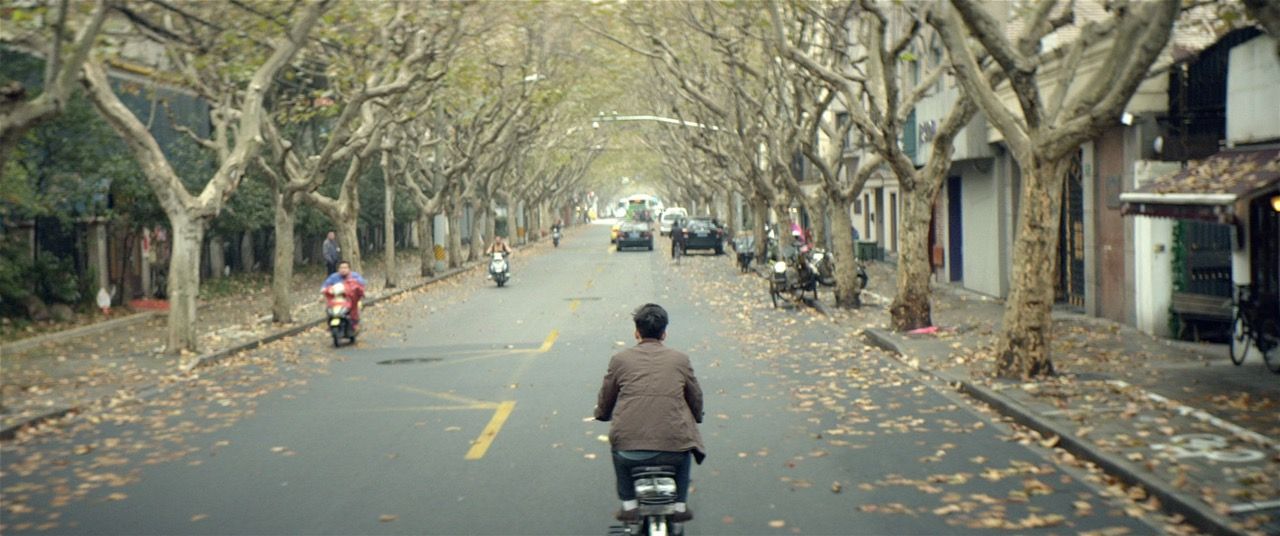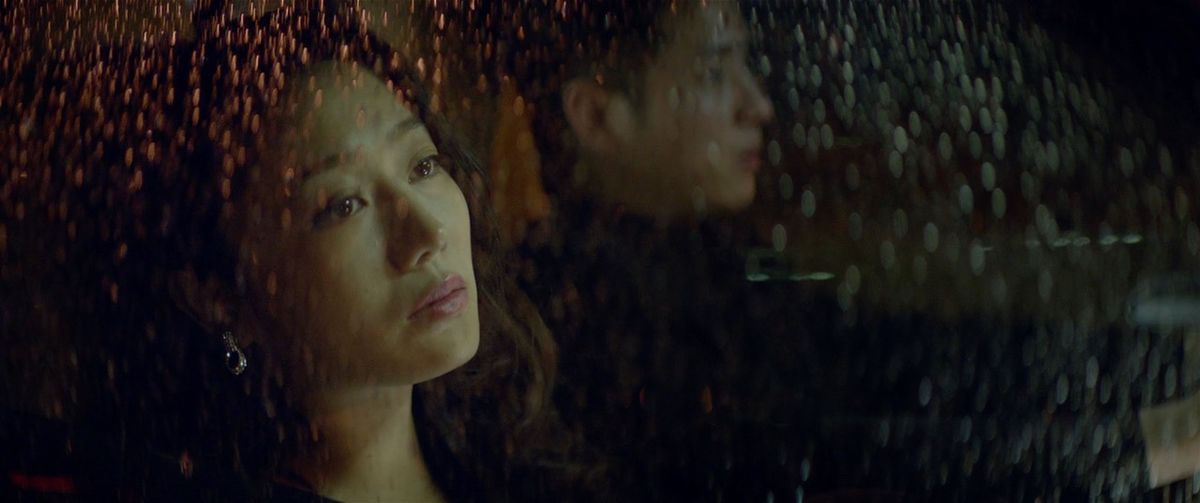A parking valet and the daughter of a wealthy businessman journey through Shanghai’s nightlife in an attempt to escape the reality of their lives in Somebody Else. Director Laurent King talks artistry in advertisement, life on the festival circuit, and the making of a modern-day fairy tale.
EastIndie: You’re based in France, but you also have a strong personal connection with China and with Shanghai in particular. Can you share a bit about that connection?
Laurent King: I was born in Paris and my mother is French, but my father was Chinese. He was born in Shanghai, but I didn’t go to China until I was twenty-six. After that, I tried going back as often as I could. I also have two aunts there and several cousins, mostly in the Shanghai area.
EI: Do you see yourself as a director with more European sensibilities or do you think your background and experiences put you in a unique position to draw on both Western and Asian influences in your work?
LK: It’s a bit difficult to break down the essence of what choices you make. The technical aspect—where I practiced the craft of the cinematographer—was something I learned in America. The “sensitive” aspect—what emotion a certain framing can create, how lighting affects mood—is something I developed in Europe. Asia changed the way I think of colors. So, I suppose I’m more a sum of those experiences than a European director.
EI: You’ve also had the chance to direct commercial advertisement in both China and Europe. What are some of the biggest differences for you between working here, there, and elsewhere?
LK: There is a kind of universality of film practice that spans worldwide. But, the biggest difference comes in briefing actors, because then you leave the technical side and get more into the cultural aspect of things. When working in a culture you are less familiar with, it’s always good to listen and observe. The words you use to speak to an actor—to get him or her on the right emotional path—depend on those references you pick up during your stay abroad or your time at home.

EI: Has your experience directing commercials had an impact on the way you approach narrative filmmaking? Or, does it all really just come down to getting an opportunity to spend more time in the director’s chair?
LK: Commercials have an interestingly bad rep in the world of narrative. People from fiction usually believe that because you come from commercials, you’re going to be slower, require a bigger budget, not know how to direct actors… I think these types of comments address another time in the advertising industry. Nowadays there never is enough money—hence, time—so you’re always running to be more efficient which also means you have to get to the point of a message.
EI: Likewise, would you say gone are the days when it was possible to condemn commercial advertisement as being altogether void of artistic value?
LK: Whether a message has artistic value or not depends on the script and the agency you’re working with. It takes three parties—the client, the agency, and the filmmakers—to be in tune, especially at the editing stage, for an advert to be successful. It’s also a good exercise in negotiation and explaining why you wish to defend such-and-such a point. For those who can’t accept working for a client or who think commercials is selling out one’s vision… well, don’t do commercials.
"The story came from long walks and observations during several stays in Shanghai where I saw a social disparity that we would never witness in Europe."
EI: Your latest film Somebody Else tells the story of a working-class man and a wealthy heiress who spend a night together traveling the streets of Shanghai. Where did the idea for the story come from?
LK: The story came from long walks and observations during several stays in Shanghai where I saw a social disparity that we would never witness in Europe—old wooden houses sandwiched between two marble-clad Gucci-type malls all on the same city block. You quickly get to asking yourself how the people living in the wooden houses feel about the world surrounding them. From the get-go though, we wanted to stay away from any patronizing or heavy social situations. Instead, we aimed for an optimistic and sensitive story line.
EI: It’s also possible to view the film as a modern variation on the story of the princess and the pauper. Did you intentionally set out to tell a fairy tale story from the start?
LK: This was intentional from the very beginning. The way things turned out also with the texture of the picture, we did take some poetic license to pull things more in the aesthetic direction of some form of fairy tale. But, it was always intended to be grounded in reality, or at least somewhat motivated in that way.

EI: The film is set in Shanghai, but do you think there is anything about the story which makes it a uniquely Chinese one? Would it resonate or play out in the same way if it were set, for example, in New York or London or Paris?
LK: I suppose it could play out the same way if told abroad, but there is a unique non-dialogue that happens in Chinese families that I find interesting. It’s like an unspoken and very strong bond between parents and children that would require an adaptation to work in a western setting.
EI: One topic the film does touch on is the subject of China’s fuerdai or second-generation rich kids. Is this a topic that interests you as filmmaker or did you incorporate this aspect purely because it lent itself to the story you wanted to tell?
LK: What I found interesting was the contrast between two people of the same age but from different social classes. No one is smarter or dumber than the other, we’re just talking about money in the wallet. And, what happens when some roles are swapped… As usual when the social machine performs normally there isn’t much of a story. But, when a grain of sand starts screwing with the mechanism, that’s where you can find an angle to tell one.
"I suppose it could play out the same way if told abroad, but there is a unique non-dialogue that happens in Chinese families that I find interesting."
EI: In making the film, you also had the backing of PIG China—a group you’ve worked with on a number of commercials in the past. How did they get involved in the project?
LK: I spoke briefly with Nick Dodet at PIG China about making a short film back in June 2015. He happened to like the idea and we got the ball rolling at the end of October when he appointed Pauline Sun as the producer on the project. I sent a first draft forty-eight hours after we were finished writing it.
EI: You actually collaborated on the screenplay with writer Olivier Domerc. How important was it to have someone else to work with at that stage of the creative process and what was that process like?
LK: I completely and overtly lack the discipline it takes for writing alone. I can come up with ideas, concepts and characters—the who, when, and where—but, for the drama side of things I’m more comfortable bouncing ideas off of someone and I’m equally lucky to have found a sparring partner like Olivier because we have the same cultural references in mind. That creates a shorthand.

EI: Where and when did production happen?
LK: Pre-production took place in November 2015 and we shot over four days in early-December, all in Shanghai. I then took the footage back to Paris and worked with my editor on the cut. All of the sound work was done in parallel by Comptoir du Son et des Images. Every single sound other than dialogue was carefully replaced and designed. There was also a Skype session where remotely directing the two main actors was done for ADR. Finally, the music came from Barcelona and everything was assembled in Paris.
EI: The film has already been busy doing the festival circuit in Europe and North America. What has the response been like so far?
LK: I’m completely discovering the short film festival circuit as this is the first time I’ve submitted anything. So far the response has been really good. It’s very interesting to get feedback from total strangers, to be able to see if what you had set out to say got interpreted the right way from all cultural backgrounds. Again, a great learning experience.
"It’s very interesting to get feedback from total strangers, to be able to see if what you had set out to say got interpreted the right way from all cultural backgrounds."
EI: What do you hope audiences take away from seeing the film?
LK: We didn’t set out to make a big epiphany moment for the audience, but the message that one could take away is that—as cheesy as this may sound—sometimes you have to be yourself and that in front of some people it’s OK not to pretend. The other message could be, “Don’t be a cocky little bastard.” Depending how you look at it! More seriously, I am a believer that it’s easy to lose oneself in a make-believe life because of social pressure. Some people monitor the number of “likes” on a post and feel they didn’t get the attention they deserve or that others love them less if their post isn’t successful—which is total crap. I suppose the best way to live your life is to not pretend to be somebody else. Maybe we did set out to say something bigger…
EI: Finally, what do you have planned next? Do you want to expand on this project or do you think you’ll move on to other material?
LK: This story is like an autonomous satellite. It was tailored to be fifteen minutes. There isn’t much more to say on that topic or with those characters. The next project is a web-series and I’m very interested in that format. We’ll make a series of ten-minute episodes to be released in September 2017. After that we will be able to focus on a feature film project that we’ve been looking to complete financing for this year.



